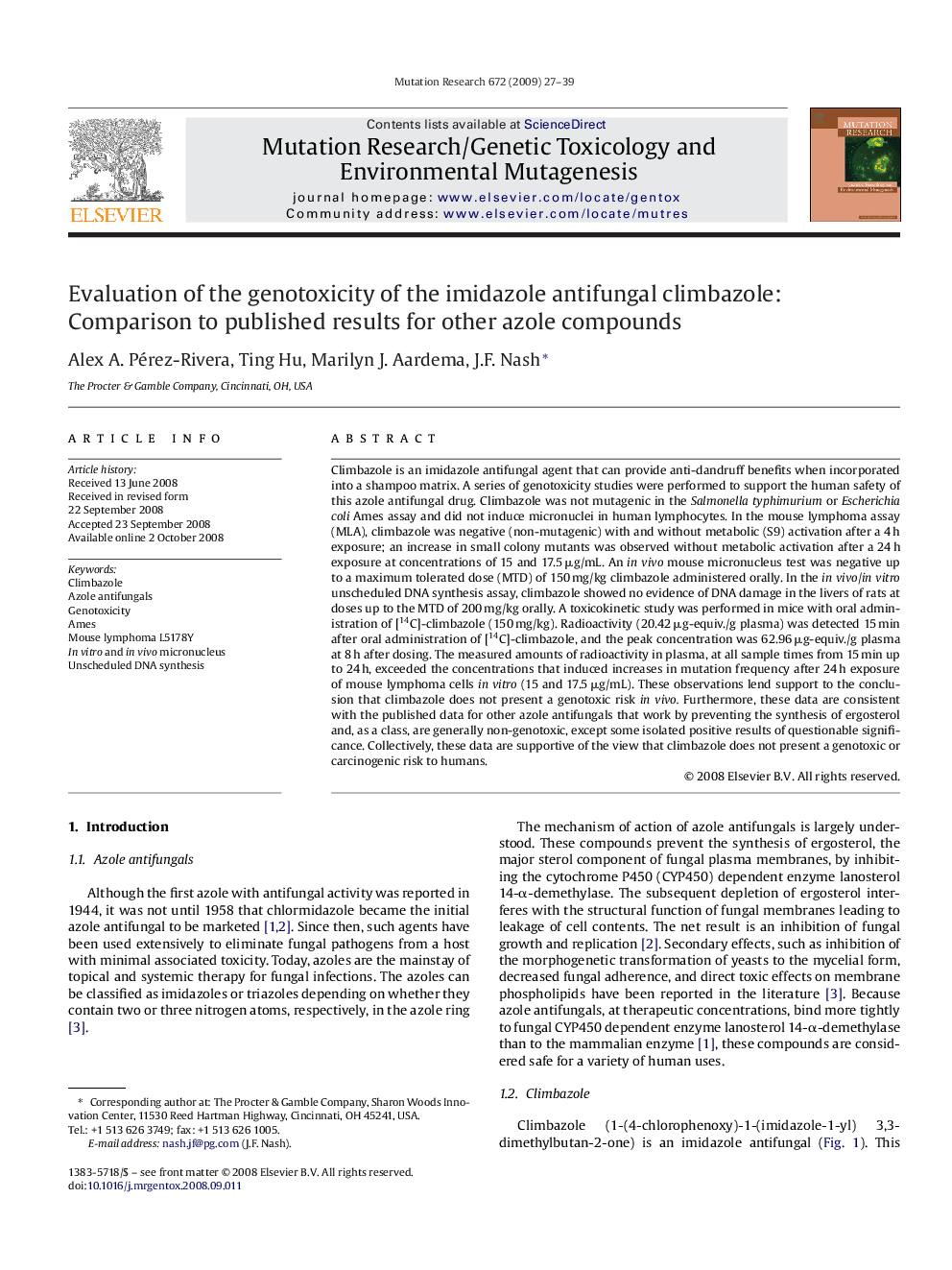| کد مقاله | کد نشریه | سال انتشار | مقاله انگلیسی | نسخه تمام متن |
|---|---|---|---|---|
| 2148794 | 1089582 | 2009 | 13 صفحه PDF | دانلود رایگان |

Climbazole is an imidazole antifungal agent that can provide anti-dandruff benefits when incorporated into a shampoo matrix. A series of genotoxicity studies were performed to support the human safety of this azole antifungal drug. Climbazole was not mutagenic in the Salmonella typhimurium or Escherichia coli Ames assay and did not induce micronuclei in human lymphocytes. In the mouse lymphoma assay (MLA), climbazole was negative (non-mutagenic) with and without metabolic (S9) activation after a 4 h exposure; an increase in small colony mutants was observed without metabolic activation after a 24 h exposure at concentrations of 15 and 17.5 μg/mL. An in vivo mouse micronucleus test was negative up to a maximum tolerated dose (MTD) of 150 mg/kg climbazole administered orally. In the in vivo/in vitro unscheduled DNA synthesis assay, climbazole showed no evidence of DNA damage in the livers of rats at doses up to the MTD of 200 mg/kg orally. A toxicokinetic study was performed in mice with oral administration of [14C]-climbazole (150 mg/kg). Radioactivity (20.42 μg-equiv./g plasma) was detected 15 min after oral administration of [14C]-climbazole, and the peak concentration was 62.96 μg-equiv./g plasma at 8 h after dosing. The measured amounts of radioactivity in plasma, at all sample times from 15 min up to 24 h, exceeded the concentrations that induced increases in mutation frequency after 24 h exposure of mouse lymphoma cells in vitro (15 and 17.5 μg/mL). These observations lend support to the conclusion that climbazole does not present a genotoxic risk in vivo. Furthermore, these data are consistent with the published data for other azole antifungals that work by preventing the synthesis of ergosterol and, as a class, are generally non-genotoxic, except some isolated positive results of questionable significance. Collectively, these data are supportive of the view that climbazole does not present a genotoxic or carcinogenic risk to humans.
Journal: Mutation Research/Genetic Toxicology and Environmental Mutagenesis - Volume 672, Issue 1, 10 January 2009, Pages 27–39